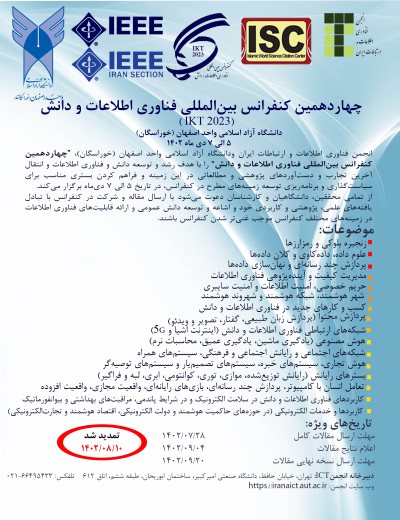0% Complete
Authors :
Keywords :
Abstract :
List of archived papers
Shayan Naghizadeh - Mohammad Saeed Rajabi - Ehsan Nazerfard
Arman Sepehr - Mohammadzaman Zamani - Hamid Beigy - Shabnam Behzad
Arash Ebrahimnezhad - Dr Hamid Jazayeriy - Dr Faria Nassiri-mofakham
مینا طباطبائی - دکتر سعیده ممتازی
زهرا کلوندی - دکتر مهدی سخائی نیا زهرا کلوندی - مهدی سخائی نیا -
MOHSEN Ahmadzadeh - Saeid Pakravan - Ghosheh Abed Hodtani
Hoda Safaeipour - Sepehr Ebadi
Kooroush Manochehri - Amir arsalan Sakhtianchi - Mehrshad Khosraviani
سعید معروف - مریم امیرمزلقانی - رضا صفابخش




